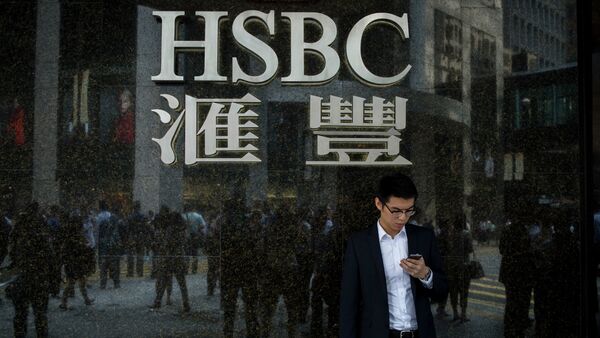MOSCOW, October 23 (RIA Novosti) – Mainland China’s manufacturing sector grew at a faster pace in October compared to the previous month as both overseas and domestic commercial demand slightly increased, the HSBC/Markit purchasing managers’ index (PMI) shows; however, this does not imply a reversal for the current trend of the economic slowdown which is set to continue into the next year.
The HSBC/Markit industrial production PMI for China added 0.2 percentage points up to 50.4 from the 50.2 in September. This is slightly better than the PMI of 50.3 most analysts had expected earlier. However, October is not over yet and the final rate is yet to be calculated, Reuters reports.
A PMI over 50.0 signifies growth, while a PMI lower than that indicates contraction.
Despite the optimistic numbers, the overall activity in the manufacturing sector in the mainland remains sluggish. Less new foreign production orders in October have triggered a lower inflation rate that dipped to a seven-month’s low. Furthermore, domestic demand is still insufficiently sustainable to support a faster growth for the nation’s manufacturing industry, as China has not yet implemented the long-anticipated structural reform that would divert the economy from the export-orientated model to one more in favor of internal consumption.
"The sub-indices do not show good momentum," said Shuang Ding, an economist for Citibank Hong Kong, as quoted by Reuters. "Both the production sub-index and the new order sub-index dropped. Those are more relevant in terms of industry production and forward-looking activity,” he contended. Mr. Shuang Ding also noted that the final rating might be lower than the current reading in accordance with the past several months’ trend.
Beijing is experiencing increased pressures to further ease economic policies, experts say. "While the manufacturing sector likely stabilized in October, the economy continues to show signs of insufficient effective demand," Hongbin Qu, says chief economist for HSBC China, as cited by Reuters. "This warrants further policy easing and we expect more easing measures on both the monetary as well as fiscal fronts in the months ahead."
While crucial sectors of China’s economy like the real estate market, domestic consumption and exports are all contracting, the decision-makers in Beijing are viewing employment as the key to economic growth. The nation’s central bank has expressed an unwillingness to ease policies unless the job market starts to shrink. Beijing’s only fear is unemployment, as it may trigger social protests that may quickly become political.
In an attempt to boost economic growth, Chinese authorities have lowered the minimum required volume of deposits for bank holdings, as reported by South China Morning Post. Beijing has also provided about $144 bn of short-term loans to the nations’ financial system as a measure to boost liquidity and contribute to mortgage-rate cuts, which could stimulate demand in the housing market.

